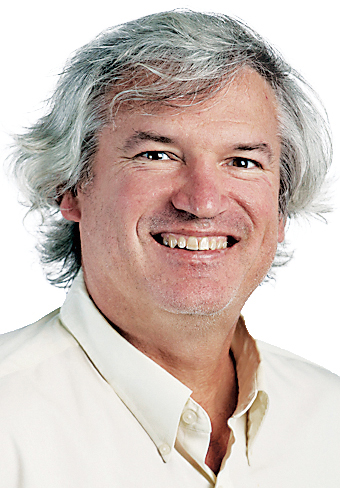Just a couple of weeks ago, I wrote in this space how fascinating and mystical I find the songwriting process. It's been a topic of many interviews with some pretty well-known and accomplished artists. Well, I had a conversation with Victor Wooten the other day and he said something that made so much sense.
Wooten will be playing with his band on Sunday in The Caverns in Pelham, Tenn. Also on the bill is Sinbad, so you'll hear great music and some funny jokes if you go. Sinbad might even play some music, Wooten said.
In case you don't know, Wooten is a much-in-demand and very busy bass player, and I was fascinated how he could so easily go from studio session to live performance with so many different people and in so many different styles of music.
"It all starts from listening," he said.
He said music is just another language that people learn to help them communicate, it's just that there are so many different dialects. Some people, like himself, are better at picking up those dialects.
I told him I realized asking him how he was able to jump from genre to genre was equivalent to asking Larry Bird or Magic Johnson, who were both known for making unbelievable passes on the basketball court, how they even saw the pass, much less made it. That's when he said, "It's like being able to talk your child one second and then answer your wife the next."
What a perfect answer.
When we spoke, Wooten was driving home from the Victor Wooten's Center for Music and Nature, camp for young people that he started. He invites some of his friends in the industry to teach the kids about playing and creating music, but also about getting out and enjoying nature.
For the show on Sunday, he will be with borthers Regi, Roy "Futureman" and Joseph Wooten, as well as saxophone innovator Bob Franceschini. Sinbad will actually be playing percussion for the show.
"I can't even begin to express how excited I am to be on this tour with Victor Wooten and friends," Sinbad says in a release.
"Although people may know about my love for music, most don't know that I also play (shedding hard for this tour ). I can't believe I get to be in the band playing percussion with Victor his brothers and the rest of this talented band. Victor is not only one of the baddest bass players that ever lived, but his approach to music is the most unique of any musician I have ever met. I am Looking forward to picking everyone's brain on the tour bus about every instrument. The Funk is gonna be heavy on this tour, and I am all about the funk. All I can say is If you get a chance to check us out you will be moved and blessed with some funk and fun!"
Wooten says it was his managers idea to put Sinbad on the bill.
"A lot of people don't know that he can play. It's going to be fun. You can't be around him and not laugh. He never stops."
Wooten also said he has never played in a cave before, and is looking forward to it.
» Robert Maier was a college student in his early 20s studying filmmaking in Baltimore when an equally young director named John Waters walked into the school looking for students willing and capable of helping him make a movie.
Maier would eventually work with Waters and actor, singer, drag queen Divine on such films as "Polyester," "Hairspray," "Female Trouble" and "Cry-Baby." He also produced the 30-minute underground film "Love Letter to Edie," a documentary on the life and career of actress Edith Massey, and wrote the book "Low Budget Hell: Making Underground Movies with John Waters" about making the movies of John Waters.
Maier will be in town on Sunday at The Palace for the next edition of Sunday Slashers. "Love Letter to Edie" and John Waters' "Desperate Living" will be screened and Maier will talk about the film and his book.
"I'm really excited that people are interested in this," he said. "I love talking about it."
It might be difficult to imagine what it was like for Maier to be involved in such projects at that time. First of all, this was well before smart phones turned everybody into a filmmaker. Just having access to a camera made Maier a rare commidity.
"Back then 16 millimeter were extremely expensive and rare. Very rare. I think in Baltimore there were like five of them. Plus all of the lighting and tripods and editing equipment."
And, the work was shot on film, which was expensive to buy and have developed. And the films themselves were hardly mainstream. Maier said he and Waters became friends in edition to helping each other learn the craft.
"I found out he grew up like two miles away from me and Divine lived just behind my house in a neighborhood. And I had a good sense of humor, irony so we hit it off. He's very gay, John is. I don't know how many people knew that, but he was one of the first gay artists to go public. I had some gay friends, so I just figured that's his thing, so fine.
The two spent a lot of time talking about films for the nearly 15 years they worked together. Making the movies was not always easy, however.
"To get anywhere, you had to sneak. It was sneak filmmaking," he said.
"We could get ahold of the cameras and we didn't tell the professors."
To make "Love Letter to Edie" was a big risk for Maier, primarily because it took every penny he had. Even at the time, he says he never thought he could make a living at making films.
"We worked really hard at it to make it happen. We were doing it because we wanted to."
Maier says that he has gotten requests to show the film every so often over the years, but now that he is retired, he hopes to spend more time talking about it and the book.
"It's fascinating to me to have this attention, still. To me, it seems like yesterday. Seriously."
Contact Barry Courter at bcourter@timesfreepress.com or 423-757-6354.

